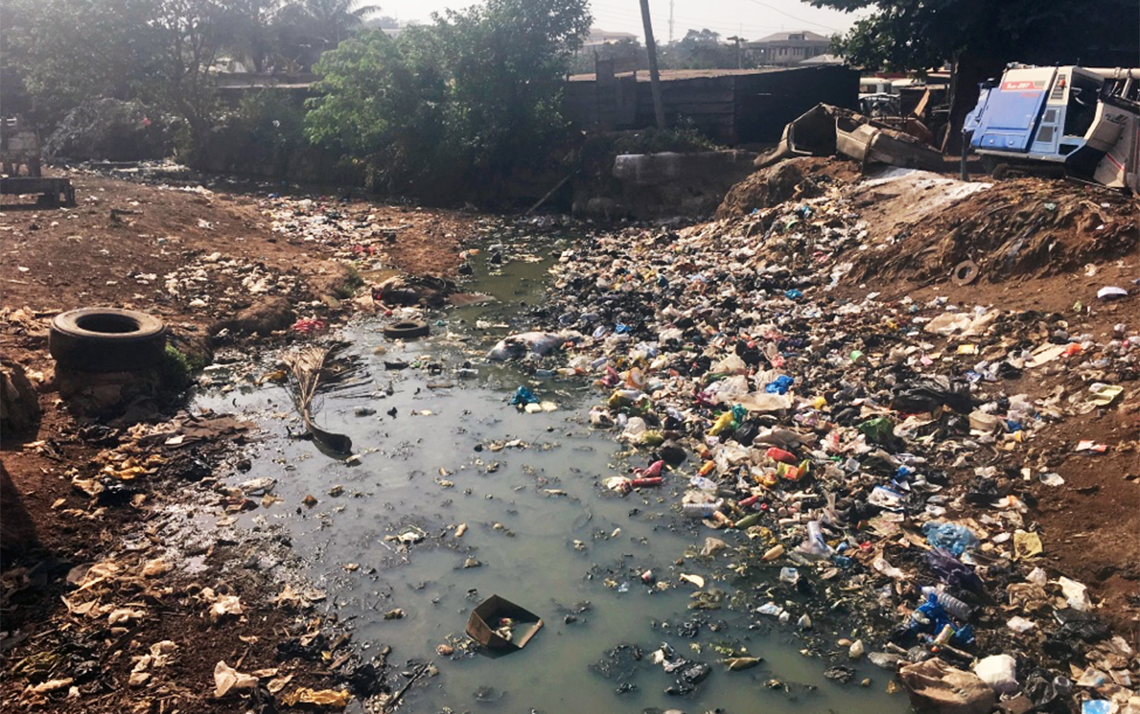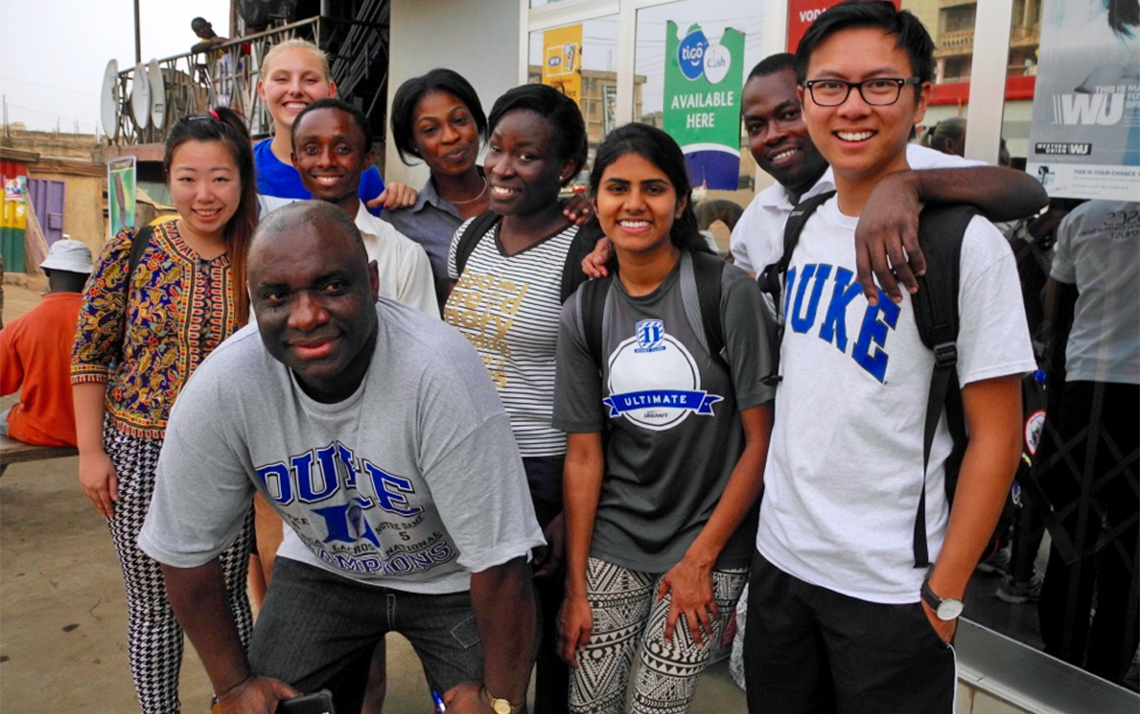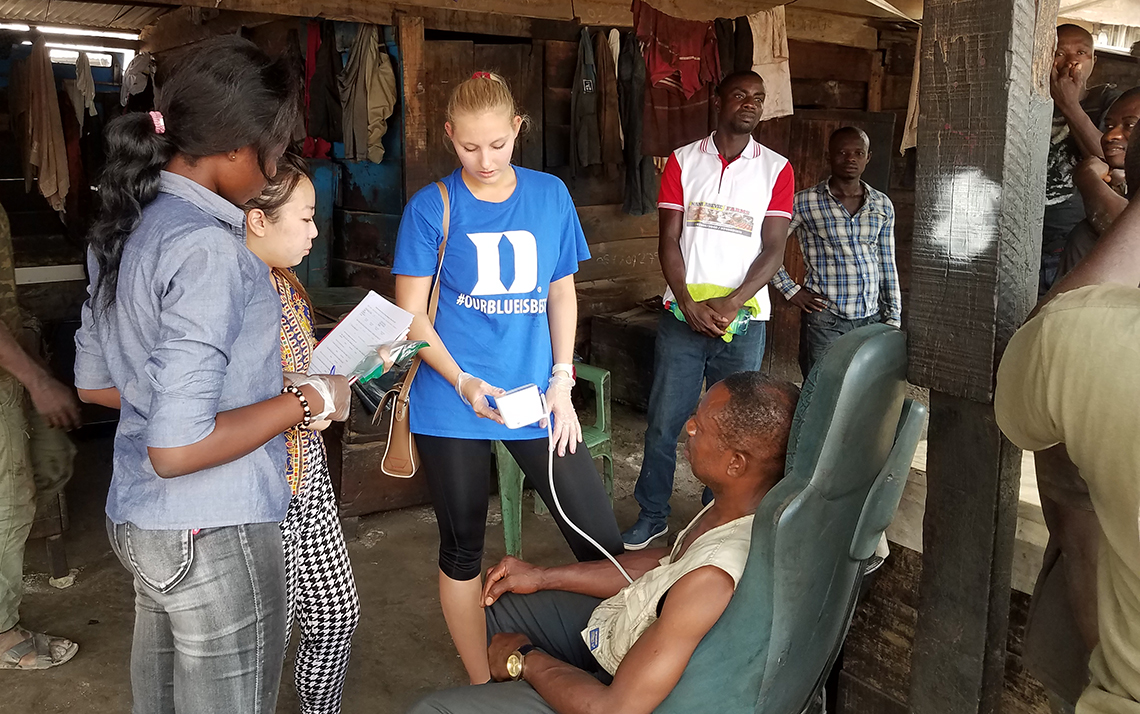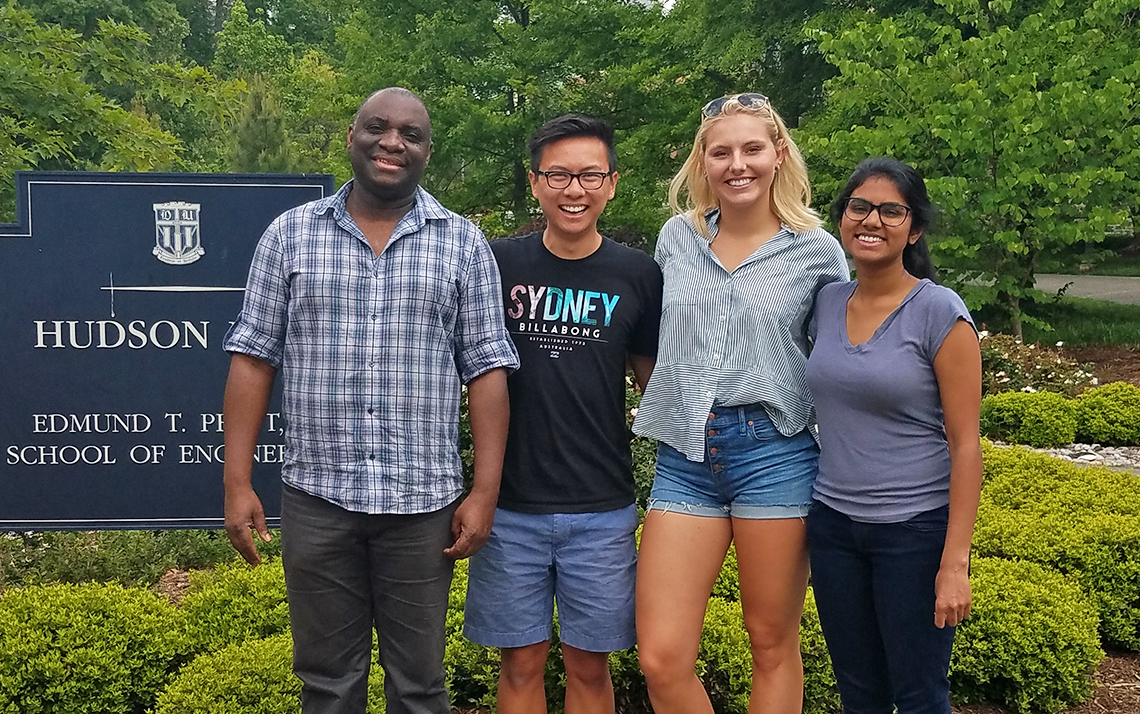Auto Mechanics Keep Vehicles on the Road in Ghana, But Are They Putting Themselves at Risk?
May 8, 2017
Duke team collaborates with Ghanaian partners to investigate health hazards in auto repair industry
Growing up in Ghana, Fred Boadu loved eating the ripe pineapples his grandmother brought from Asante Juaben, the town where he was born. “We kids were all fighting for them because they were so sweet,” he recalled. Years later, on a visit back from the U.S., he was disappointed to bite into a sour-tasting pineapple.
The seller mentioned that the farmers apply plenty of fertilizer to increase the yield of their crops. “I knew from the geology of the farming area that the bedrock is shallow and had very thin soil cover,” said Boadu, associate professor of civil and environmental engineering. “Too much fertilizer could be a threat to the groundwater.” That got him thinking about the potential effects of these farming practices on the environment and the health of farmers and children, and he organized a DukeEngage summer project on nitrate contamination in the drinking water supply.
In the U.S. if you go to change your oil, you pay a premium for it to be disposed of properly. In Ghana there’s nothing like that.
More recently, he turned his attention to the problem of used motor oil, which gets dumped into the ground in large quantities every year. “In the U.S. if you go to change your oil, you pay a premium for it to be disposed of properly, because the government and stakeholders are aware of the consequences,” Boadu explained. “In Ghana there’s nothing like that.”

The transportation sector is one of the main drivers of the economy, Boadu noted. “There is a huge amount of old imported cars and other transportation everywhere. Because these are normally very old, they are always breaking down.” The vast industry for repairing these vehicles is a common career path for high school dropouts.

In the Ashanti region near the city of Kumasi, an auto mechanic “village” called Suame Magazine contains hundreds of auto repair workshops. This village is one of over a thousand such spaces for auto repair in that region alone. Ghana’s nine other regions are similarly well supplied.
These people were at risk, and therefore we needed to find a way to assess and subsequently help them.
The mechanics work without gloves and dispose of used motor oil by pouring it into the bare ground. The soil in this area has already been found have high levels of lead, chromium, iron and manganese. Boadu worried about the impact on food and water, as well as what this direct exposure might be doing to the mechanics. “These people were at risk, and therefore we needed to find a way to assess and subsequently help them.”

In 2016-17 he led a Bass Connections project with Dennis Clements in partnership with Kwame Nkrumah University of Science and Technology (KNUST) in Kumasi, Ghana. As part of this year-long research project, Boadu and four students conducted sample collection and testing with their KNUST partners at Suame Magazine over winter break. “Everyone had their own interests in the project and brought their own skills,” said Prathibha Juturu ’17, an environmental engineering major.

The team spent time with the mechanics and took samples of hair, fingernails and toenails along with blood pressure, weight and height measurements. These samples were analyzed at the central lab at KNUST. “So far we’ve seen high levels of iron and chromium,” Boadu said. “Elevated levels of iron have been associated with liver disease, cardiac arrest and diabetes, and high levels of chromium are associated with cancer.” He noted that “the average blood pressure was very, very high.”

“We found that a lot of the mechanics aren’t taking precautions,” said environmental sciences major Jason Dinh ’18. “They were unaware that these used oils had chemicals that would affect their health.
Awareness is the key. We need to find ways to educate them more about what they are getting into.
After the trip, the students analyzed and assessed the data to explore any potential associations between the heavy metals in the samples and blood pressure. The data will form the basis for an education and awareness campaign, which Boadu hopes to carry out through a DukeEngage project. “Awareness is the key,” Boadu said. “The mechanics are mostly high school dropouts, and we need to find ways to educate them more about what they are getting into.” He is also interested in partnering with researchers to devise a practical approach to safely process used motor oil and resell it, thus incentivizing the mechanics not to throw it away.
Ethically it’s always right for students to use what they’ve learned to help other people. And the students really love it.
As an engineer, Boadu believes in using his knowledge to help society. In turn, students share in this responsibility. “Ethically it’s always right for students to use what they’ve learned to help other people,” he said, “regardless of who they are. And the students really love it.”

“It was one of the most amazing experiences I’ve had at Duke,” said Natalie Moszczynski ’18, a global health and history major. “My trip to Ghana was one of the most amazing experiences of my life.”
Additional support for this project was provided by the Silver Family Kenan Institute for Ethics Fund in Support of Bass Connections.
Learn More
- Watch the video.
- Explore Bass Connections in Global Health.
- Find out how to get involved in Bass Connections.
